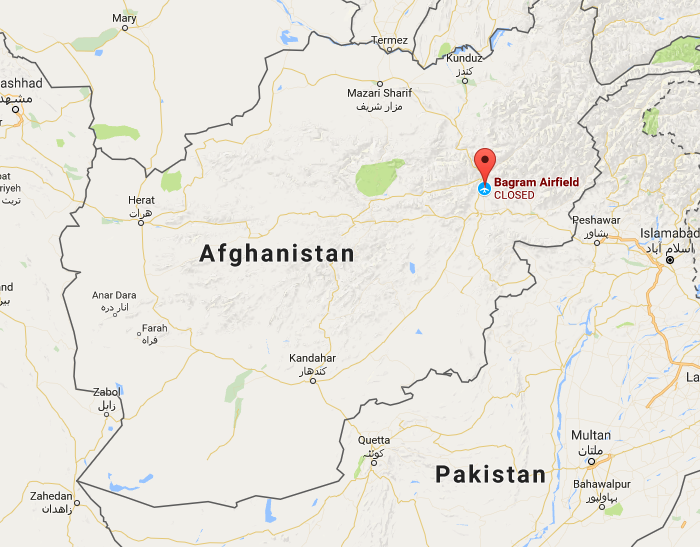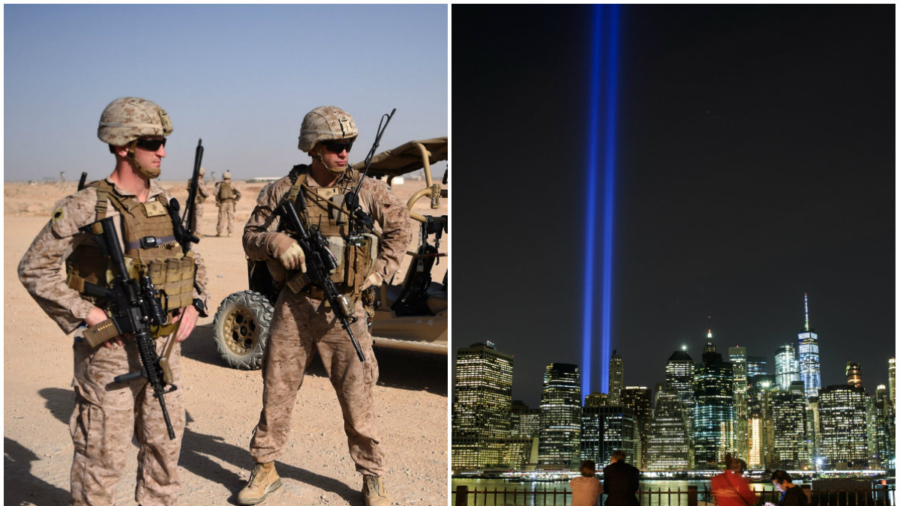Sixteen years after terrorists toppled the World Trade Center, the War on Terror continues unabated.
On the 9/11 anniversary on Monday, a suicide attack injured five U.S. soldiers and one soldier of an unidentified country near the Bagram Airfield in western Afghanistan, according to the U.S. Central Command. An unspecified number of Afghan civilians were also wounded in the attack.

The attacker targeted a NATO coalition convoy with a car carrying an improvised explosive. The injured soldiers were taken to the airfield’s hospital. “None of the injuries are considered life threatening,” the Central Command stated in a release.
The convoy was part of a regular patrol. The attacker waited in a parked car for the patrol to pass before detonating the bomb, an unnamed official with the coalition told CNN. The official described the injuries to the troops as minor.
The wounded civilians were taken to a local civilian hospital, however, Central Command was unable to report on their conditions.
The war in Afghanistan—the longest in American history—has claimed the lives of over 2,400 U.S. soldiers and over 1,000 soldiers of other coalition countries since it began in response to the 9/11 attacks in 2001.
There are some 11,000 U.S. troops in Afghanistan as part of the Operation Resolute Support to advise the Afghan military’s fight against the Taliban and ISIS terrorist groups. U.S. Defense Secretary James Mattis plans to add almost 4,000 troops to the fight.
President Donald Trump described the U.S. strategy for the war in Afghanistan in his Aug. 21 speech at Fort Myer in Virginia.
Trump said that the war must “seek an honorable and enduring outcome worthy of the tremendous sacrifices that have been made, especially the sacrifices of lives.”
He said that his “original instinct was to pull out,” but after speaking with U.S. military leaders, determined that Afghanistan could not be allowed to fall into the hands of radical Islamic terrorist groups.
Trump noted that he doesn’t want to repeat the Obama administration’s hasty withdrawal from Iraq in 2011, which created a power vacuum that led to parts of the country being seized by ISIS.
He addressed the threat of terrorism at large in his 9/11 anniversary speech at the Pentagon.
“We’re ensuring that they never again have a safe haven to launch attacks against our country,” he said. “We are making plain to these savage killers that there is no dark corner beyond our reach, no sanctuary beyond our grasp, and nowhere to hide anywhere on this very large earth.”
Joshua Philipp contributed to this article.
From The Epoch Times

